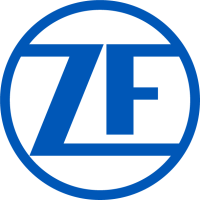Frangipani
Top 20

Intel CEO Gelsinger proposes a fab tour for Elon Musk — could be an attempt to win orders from Tesla, other Musk companies
CHIP Act funding arrives, hastens the need to get IFS customers lined up.www.tomshardware.com
View attachment 59831
Musk would surely be an excellent catch for IFS. This superrich entrepreneur has fingers in many tech pies that are highly reliant on processors, lots of state-of-the-art processors. Musk's firms buy AI accelerators from both AMD and Nvidia, for tasks like machine learning, computer vision, self-driving, Grok, and more, but the firm is also developing its own Dojo ASICs (Application-Specific Integrated-Circuits) with new generations in development.

Tata Electronics wins Tesla deal to supply semiconductor chips: Report
The deal between Tata Electronics and Tesla to supply semiconductor chips was quietly signed a few months back.
Tata Electronics wins Tesla deal to supply semiconductor chips: Report
The deal between Tata Electronics and Tesla to supply semiconductor chips was quietly signed a few months back.

India Today Business Desk
New Delhi,UPDATED: Apr 15, 2024 12:11 IST
Written By: Sonu Vivek
Tesla has signed a strategic deal with Tata Electronics to obtain semiconductor chips for its global operations, reported The Economic Times.
The deal, which was quietly signed a few months back, holds importance as it puts Tata Electronics in the spotlight as a dependable supplier for major global clients eyeing a crucial part of their semiconductor setup in India.
US-based Tesla is eyeing India, known as the world's fastest-growing major car market. This development suggests the electric carmaker's growing interest in India.
Elon Musk is coming to India later this month to meet with Prime Minister Narendra Modi. It is anticipated that Musk might reveal his plans for potential investments in India, including putting money into making electric vehicles (EVs).
Both Tesla and Tata Electronics, the front-runner in the Tata group's semiconductor venture, have not confirmed the news and hence the exact value of the deal and other specifics remain under wraps for now.
Ashok Chandak, head of India Electronics and Semiconductor Association (IESA), said that Tesla's move to rope in local suppliers for electronics and subsystems indicates it's not banking solely on one market. The main concern revolves around getting local semiconductor sources right.
“This needs improvement in the supply chain as value addition for the industrial and automotive segments is much higher,” Chandak told The Economic Times.
Though the numbers might differ, most experts estimate Tesla could pour in at least $2-3 billion into India to make electric cars, which are gradually gaining traction in the local market.
Recent changes in policies have made it easier for carmakers to bring in EVs valued at $35,000 or above with a reduced import duty of 15%. But there's a catch: they need to pledge $500 million within three years to start making cars in India. Tesla might initially focus on high-end electric models tailored with fancy features for the Indian market.
Most experts think Tesla might invest $2-3 billion in India to make electric cars, which are slowly becoming more popular in the country.
Recent rule changes let carmakers bring in electric cars priced above $35,000 at a lower import tax of 15%. But they have to promise to invest $500 million within three years to make cars in India. Tesla might start with high-end electric cars for India and then make cheaper ones here.
Meanwhile, Tata Electronics has hired 50-60 top experts from abroad in recent months to boost its chip business.
Since Covid, Tesla has been looking for more places to get parts from, besides China. It makes some parts itself, like electric motors and batteries, but buys the rest from suppliers around the world.
Randhir Thakur, the head of Tata Electronics, has played a big role in getting these top experts on board. He used to work at Intel, a big chip company.
Thakur's long experience and contacts have helped him convince many top bosses from around the world to join Tata Electronics.
The company has chip-making factories in Tamil Nadu, Gujarat, and Assam, and plans to expand across India. It has already put in $14 billion and has a team with over 1,000 years of experience to run the project.
Published By: Sonu Vivek
Published On: Apr 15, 2024








